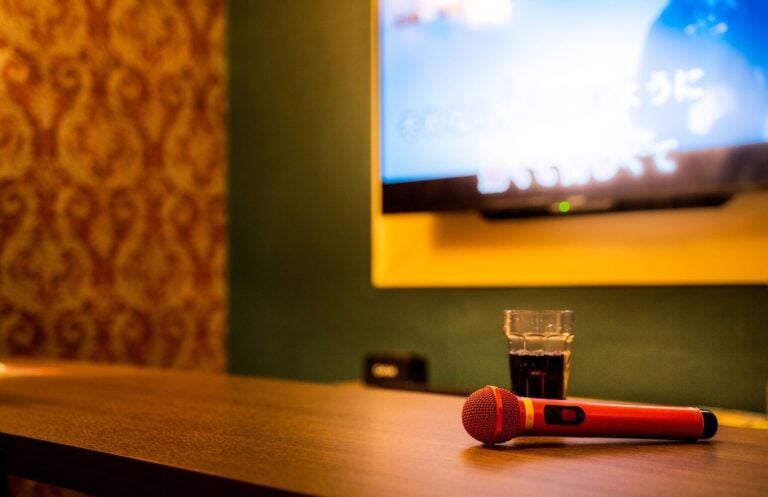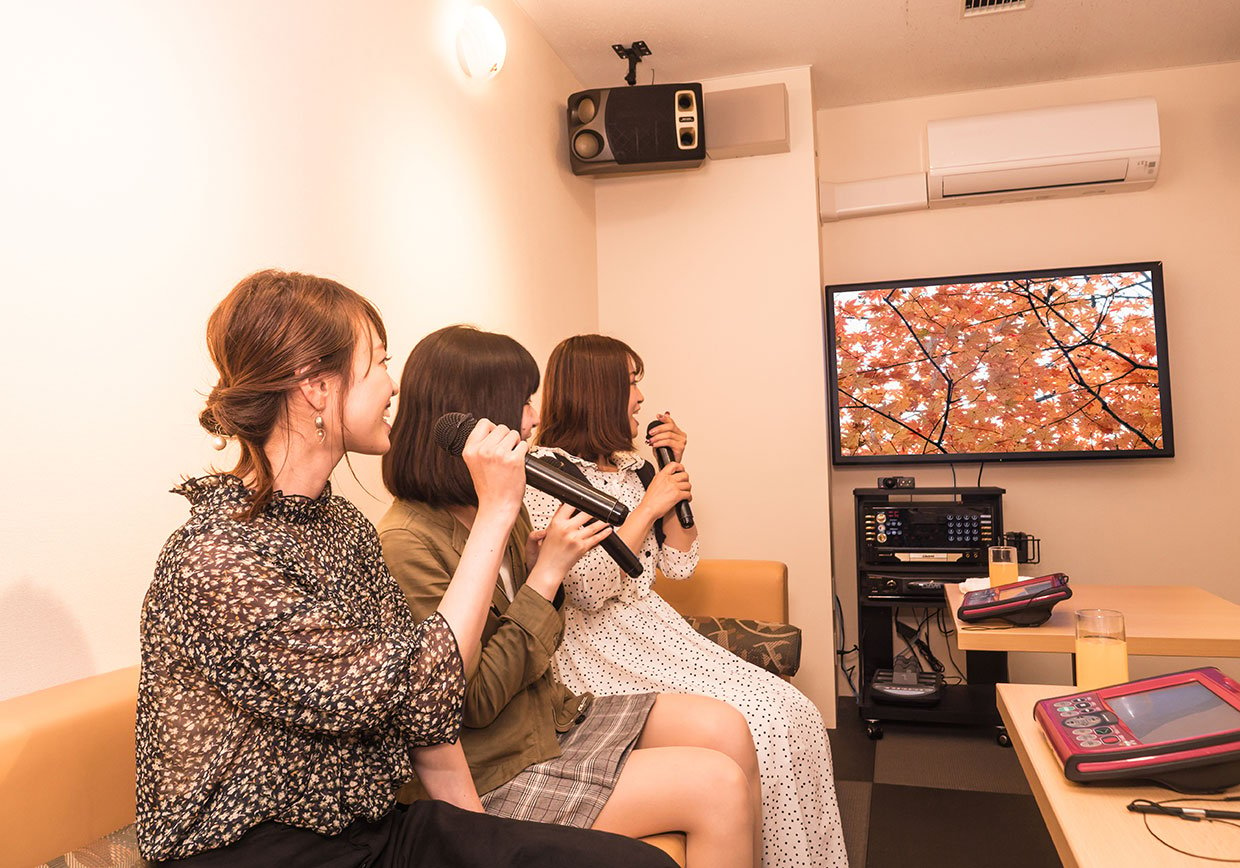
After visiting a couple of bars in Japan on the same night, drinking and chats can get a bit old. Conversation will inevitably turn to mixing things up a bit. Sure, there’s pool and darts, but nothing gets quite the same enthusiastic response from a group of inebriated locals as karaoke does. Since its humble beginnings during the 1960s, karaoke has grown to be one of the most popular pastimes in Japan, from senior to child.
Why is Karaoke so important in Japan?
In general, Japanese culture is one of reserve, respect, social harmony, and self-awareness. In the workplace, there is an unspoken social hierarchy that makes connecting with coworkers outside of business-related tasks difficult. As such, there are few occasions in everyday Japanese life to “let loose”. Enter: karaoke! Given its longstanding history, it’s no wonder that karaoke forms a significant part of Japanese culture. The private rooms in a karaoke hall are seen as a place to do more than just stretch those vocal chords—it’s an occasion to relax, have fun, and socialize with coworkers, friends, and significant others. The two words to remember when approaching a karaoke session with a Japanese group are “fun” and “enthusiasm”.
Not only do groups of salarymen pile into karaoke rooms to sing their hearts out after a day at the office, school-aged groups of friends and couples frequent them too, as it provides entertainment with a little privacy that is otherwise hard to find. Not only this, but it presents the rare opportunity for the aforementioned social hierarchy to be stretched a bit, meaning that you might see the recent hire belting out a rendition of “Futari no Ginza” (二人の銀座) with his boss.

Choosing a Song
Any karaoke establishment in Japan will come equipped with a tablet or touchscreen through which you can search and queue your desired song. As they often come in Japanese, this can be a daunting task. Here are some words to familiarize yourself in order to navigate the technology seamlessly:
| Japanese | Romaji | English | Description |
|---|---|---|---|
| 曲 | Kyoku | Song | Refers to individual songs available for selection. |
| 歌手 | Kashu | Singer/Artist | Search for songs by the name of the artist or band. |
| 曲名 | Kyokumei | Song Title | Search by the title of the song. |
| 予約 | Yoyaku | Reserve | Queue up a song to sing next. |
| ジャンル | Janru | Genre | Browse songs by genre (e.g., pop, rock, anime). |
| 人気 | Ninki | Popular | Shows a list of popular songs. |
| 音量 | Onryou | Volume | Adjust the microphone or background music volume. |
| 採点 | Saiten | Scoring | Enable scoring to evaluate your performance. |
| キー | Kī | Key | Adjust the song’s key (pitch) higher or lower. |
| 終了 | Shūryō | End | End the song or exit the current menu. |
Choosing the Right Songs
Of course, a successful karaoke session requires more than just showing up. The next step is probably the most intimidating: choosing a song. This is a daunting task even in someone’s native language, but in Japanese this can prove downright terrifying. Keep in mind the keyword “enthusiasm” and practice it a little while you make dinner or clean the apartment, however, and you’ll be golden! Truthfully, nothing will gain the respect of your coworkers more than putting in genuine effort while simply enjoying yourself. You can always start with a song in your native language to ease into the experience before choosing a Japanese song, too.
Depending on your confidence, it might also help to choose classic Japanese songs that most of the people you are going with will know. Think “Plastic Love” by Mariya Takeuchi (竹内まりや) or even “チェリー” by Spitz. These songs are also on the slower side, which makes your job much easier. Consider the general age group of whoever you’re going with, too, since a group that skews younger will be familiar with more current pop music. Conversely, if you’re with a group of older Japanese coworkers, you might get more mileage out of knowing a classic enka song. Certainly no one will be expecting a foreigner to know—let alone sing—one.
Engaging with the Audience
Even if your singing leaves something to be desired, that’s nothing you can’t make up for in your performance! As difficult as it may be in the beginning, try to encourage others to sing along, especially if it’s a song they might know. You could even choose to sing a classic in English like “Hey Jude” by The Beatles or “We Will Rock You” by Queen. Or, if you and someone else are feeling especially bold, choosing a duet with a local. At the very least, focus on the music and your own singing and just have fun! Even a little sway throughout the song lets everyone know you’re having a good time.
If you go with a song that is well known and loved, you might not even need to encourage others to sing along. I already loved ABBA classics like “Gimme! Gimme! Gimme!” and “Dancing Queen”, but after going to countless karaoke sessions where they made me the most popular singer of the night, I’m especially fond of them. The excitement that fills the room as soon as people realize what you’re about to sing is a real confidence booster. And while the Japanese attendees may not sing along to the verses, they will surely join in on the chorus.
Impressing locals at karaoke in Japan isn’t about having the best voice or perfecting every lyric—it’s about enthusiasm, effort, and embracing the fun of the experience. Karaoke is a unique cultural outlet where people can let loose and connect with others, making it the perfect opportunity to bond with friends, coworkers, or even new acquaintances. By choosing the right songs, engaging the audience, and showing genuine enjoyment, you’ll not only impress your Japanese companions but also create lasting memories. So don’t be afraid to grab the mic and have a great time—your enthusiasm will speak louder than any note!













